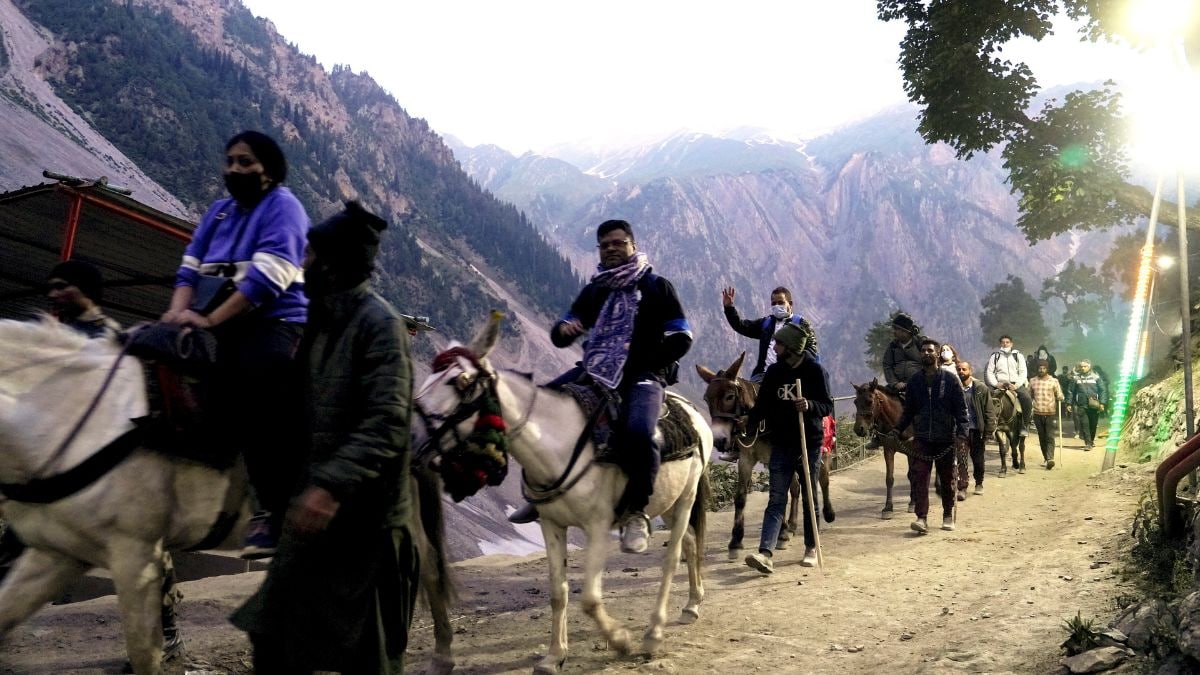

The annual Amarnath Yatra, a significant pilgrimage for Hindu devotees, is set to commence on July 3rd and continue until August 9th, 2025. This year, the 38-day yatra will be conducted amidst heightened security concerns and a comprehensive security apparatus put in place by the government. Following a recent terrorist attack in Pahalgam, which resulted in the death of several tourists and a local, security measures have been significantly intensified to ensure the safety and security of all pilgrims.
A key component of the security plan involves the deployment of approximately 50,000 personnel from the Central Reserve Police Force (CRPF). In total, 581 companies from various Central Armed Police Forces (CAPFs) will be deployed. This substantial deployment represents one of the largest security arrangements ever made for the Amarnath Yatra. These forces will be strategically positioned along the two primary routes to the Amarnath cave shrine: the traditional 48-kilometer route via Pahalgam in the Anantnag district and the shorter, 14-kilometer Baltal route in the Ganderbal district.
Beyond the significant troop deployment, the security strategy incorporates a multi-layered approach that leverages technology and specialized units. For the first time, jammers will be installed to protect the Shri Amarnath Yatra convoy. These jammers are intended to prevent incidents involving improvised explosive devices (IEDs) by neutralizing remote-controlled detonation signals. During the movement of the convoy, roads leading to the Yatra routes and National Highways will be temporarily blocked to ensure maximum security.
In addition to the jammers, the comprehensive security deployment includes Road Opening Parties (ROPs) responsible for securing and clearing the routes ahead of the pilgrim convoys. Quick Action Teams (QATs) will be strategically positioned to provide immediate response to any potential threats. Bomb Disposal Squads (BDS) equipped with advanced equipment will be deployed to detect and neutralize explosives. K9 units, featuring specially trained sniffer dogs, will assist in explosive detection. Drones will provide real-time aerial surveillance of the Yatra routes and surrounding areas.
To further enhance security and monitoring, every pilgrim and pony rider will be issued a digital identity card. Pilgrims and vehicles will be monitored using Radio Frequency Identification (RFID) tags, enabling real-time tracking of their movement. Dedicated PCR vans from the police and CRPF will accompany the Yatra convoys. Security personnel will also be equipped with satellite phones to ensure uninterrupted communication in the remote and mountainous terrain.
The Director General of CRPF personally visited Pahalgam to review the security arrangements. A security audit and digital mapping of all routes have been conducted. Union Home Minister Amit Shah has directed all security agencies to maintain high alertness and vigilance to ensure a peaceful Amarnath Yatra.
The Shri Amarnath Ji Shrine Board has stipulated that individuals below 13 years of age or above 70 years of age, even with a medical certificate, and pregnant women will not be permitted to undertake the pilgrimage.